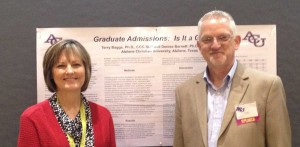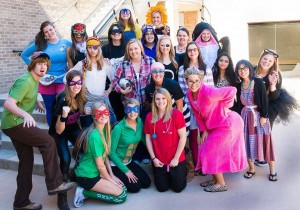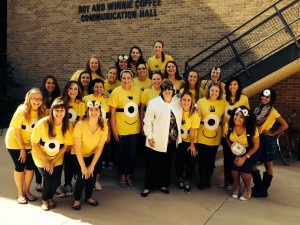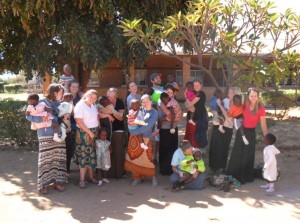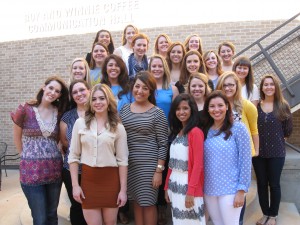BEYOND OUR WALLS: CSD EMBRACES INTERPROFESSIONAL EDUCATION
“I didn’t know that speech pathologists dealt with cognitive disorders.” That was a comment heard from several health professional students at the annual Chronic Care Day at Texas Tech at Abilene this week. According to Dr. Terry Baggs, CSD Co-Chair and member of the IPE Chronic Care Day Committee, the department has participated in numerous interprofessional education experiences through the years but Chronic Care Day, Stroke Day, and Trauma Day are cooperative efforts between ACU and Texas Tech and provide students targeted training in working with other professionals while assessing simulated patients. “In some ways, simulated patients are better than actual patients during training because the use of simulated patients allows the faculty to develop specific diagnostic scenarios for our students to enhance specific skills while working with other disciplines,” says Dr. Baggs.
 Communication Sciences and Disorders at ACU has utilized simulated patients for several years. Almost a decade ago, ACU was one of the first universities to utilize computer based simulated patients in an avatar format called SimuCase. The department has expanded to other opportunities, an example being a patient simulated competency exam in swallowing disorders. And, the faculty continue to consider new methods of teaching skills while appreciating the roles of other disciplines. Dr. Baggs says “the healthcare environment for a patient is improved when disciplines respect and understand each other.”
Communication Sciences and Disorders at ACU has utilized simulated patients for several years. Almost a decade ago, ACU was one of the first universities to utilize computer based simulated patients in an avatar format called SimuCase. The department has expanded to other opportunities, an example being a patient simulated competency exam in swallowing disorders. And, the faculty continue to consider new methods of teaching skills while appreciating the roles of other disciplines. Dr. Baggs says “the healthcare environment for a patient is improved when disciplines respect and understand each other.”

